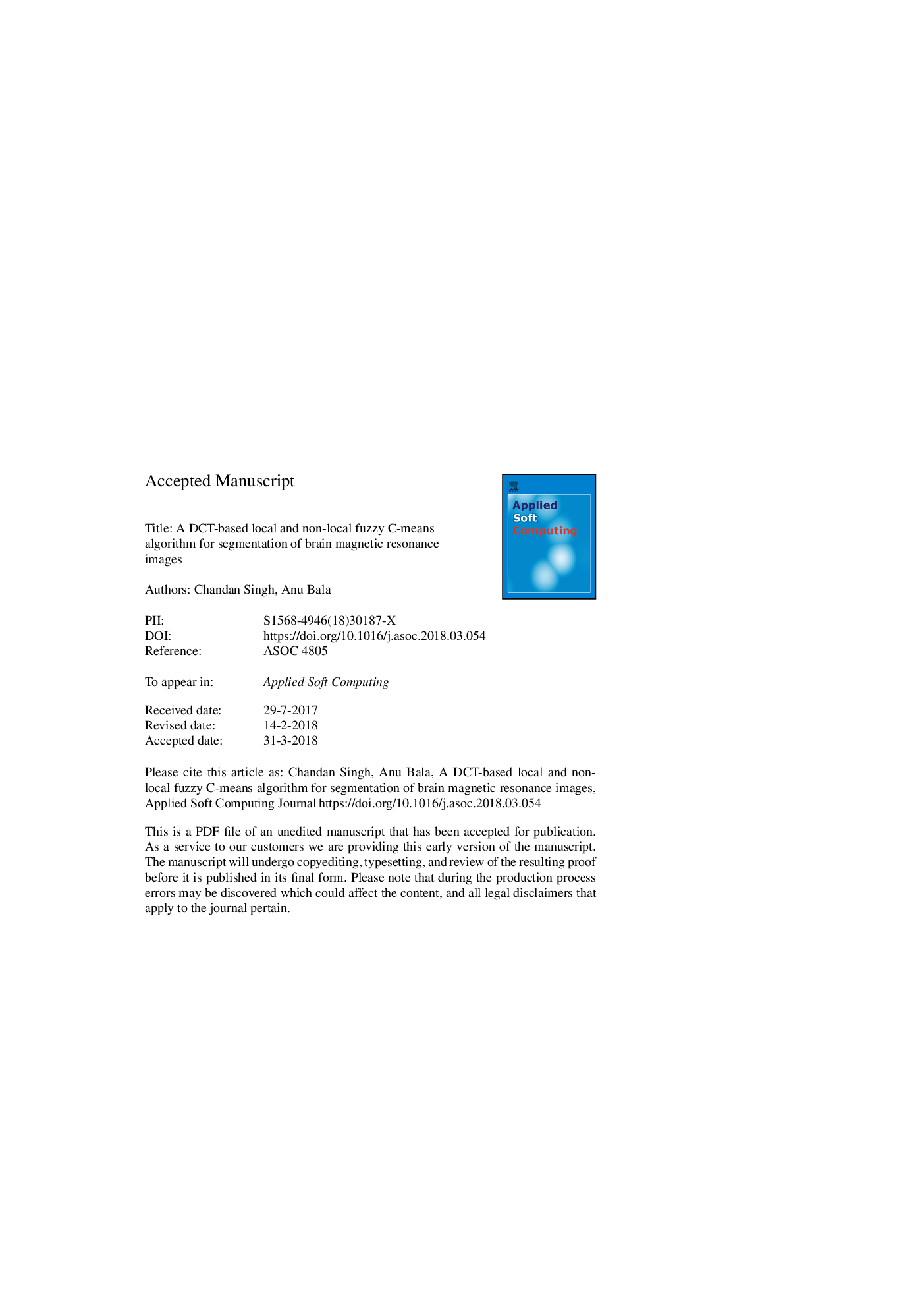| Article ID | Journal | Published Year | Pages | File Type |
|---|---|---|---|---|
| 6903653 | Applied Soft Computing | 2018 | 31 Pages |
Abstract
Accurate segmentation of brain tissues from magnetic resonance images (MRI) is a crucial requirement for the quantitative analysis of brain images. Due to the presence of noise in brain MRI, many segmentation methods suffer from low segmentation accuracy. The existing methods deal the noise sensitivity of the MRI segmentation in the spatial domain by combining the local and nonlocal information in the fuzzy C-means (FCM) method. These methods are prone to loosing image details while reducing the effect of noise. In this paper, we propose a transform domain approach using the discrete cosine transform (DCT). Working in the transform domain has an advantage over the spatial domain in which the intensity of the image is decorrelated and the image information is represented by the independent frequency bands. The low and middle level frequency bands represent the holistic and fine structures of the image and the high frequency band mostly carries the noise information. In the proposed method, called the DCT-based local and nonlocal FCM (DCT-LNLFCM), the distance function of the FCM is represented as the sum of the local and nonlocal distances which themselves are the weighted values of the Euclidean distance used in the FCM. Since the weights are computed in the transform domain, a good tradeoff is achieved between noise insensitivity and preservation of the image details. This results in the high accuracy of the MRI segmentation. Detailed experimental results are presented and comparison with the state-of-the-art techniques is performed to demonstrate the high performance of the proposed approach. The proposed method provides an improvement in the average segmentation accuracy from 1.10% to 2.03% on simulated images and 1.52% to 1.91% on real images.
Related Topics
Physical Sciences and Engineering
Computer Science
Computer Science Applications
Authors
Chandan Singh, Anu Bala,
